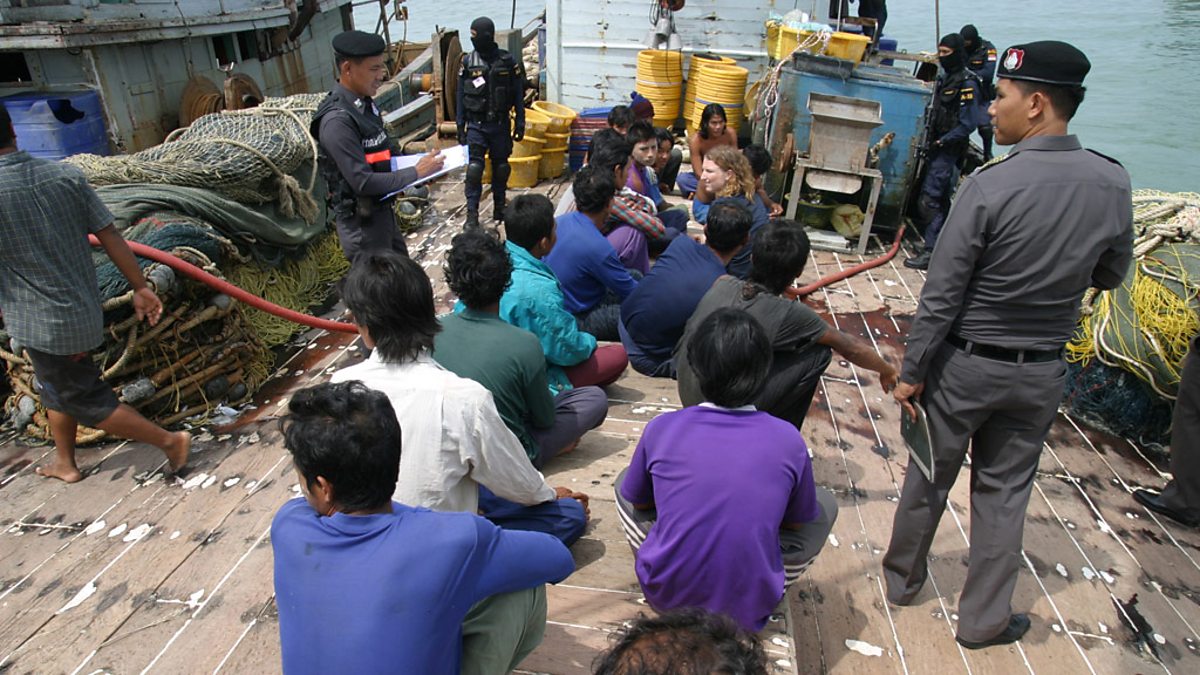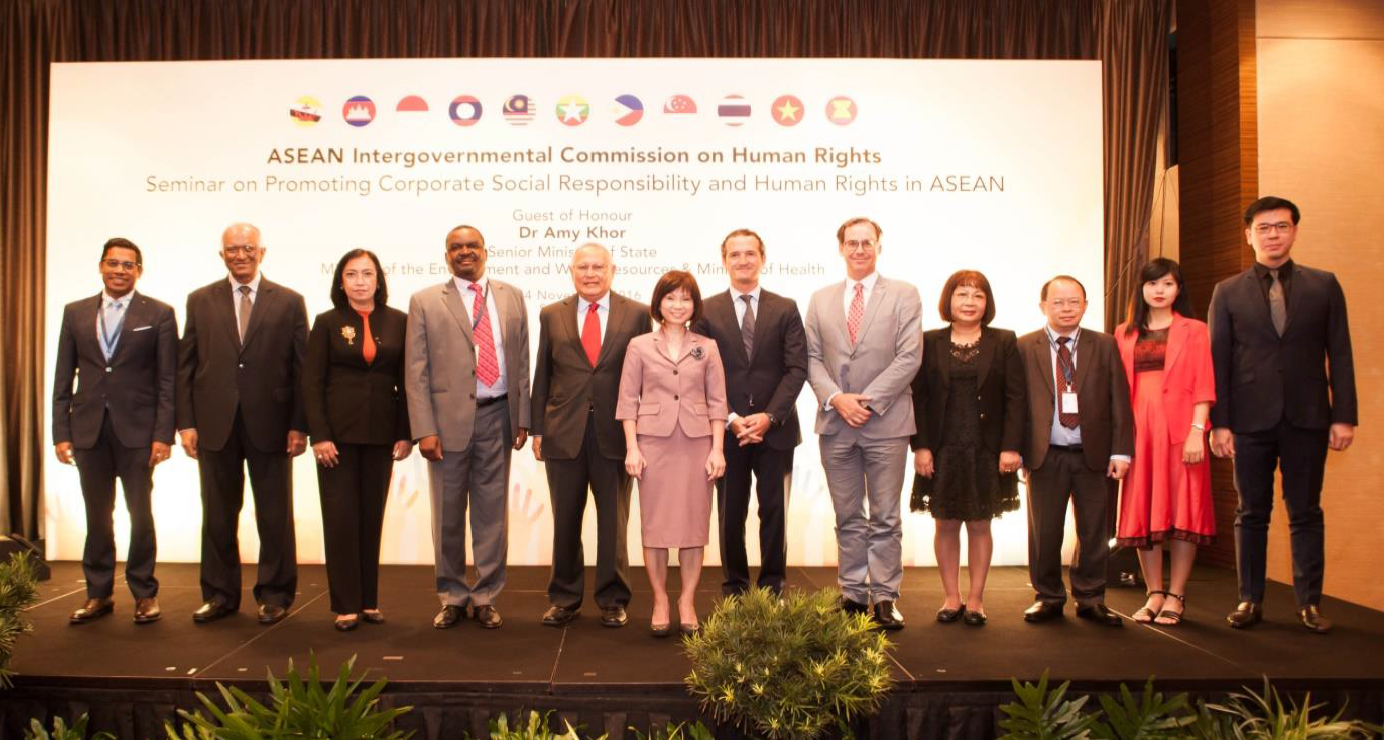
In recent years, the Thai fishing industry has faced accusations of forced labour. Certain industries such as fishing, agriculture, extractive and construction, continue to face high risks of human rights abuses in ASEAN. (Phot Credit: BBC News)
Why focus on Business & Human Rights?
ASEAN’s phenomenal rise over the past few decades has been driven primarily by ‘Factory Asia’. As one of the world’s largest workshops, the region provided cheap and abundant labour, producing much of the consumer goods the world demanded. However, one of the biggest trade-offs in its surge forward has been the side-stepping of human rights issues, and vulnerable groups – including migrant workers, women, children and indigenous peoples – continue to face human rights risks. As business activities continue to enlarge rapidly in the region, ASEAN continues to face challenges such as land grabbing, forced labour and health disasters such as the transboundary haze. High profile cases of human rights in ‘high-risk’ industries such as extraction, agriculture and energy continue to plague the region.
Our work on Business & Human Rights
In partnership with the ASEAN Intergovernmental Commission on Human Rights (AICHR), the UN Working Group on Business and Human Rights (UNWG), UNDP, Human Rights Resource Centre for ASEAN, Singapore Management University and other partners, ACN supports the adoption and implementation of internationally accepted standards and norms on business and human rights, especially the UN Guiding Principles on Business and Human Rights (Guiding Principles). The Guiding Principles were developed as a blueprint for action, clarifying the role of governments and companies to safeguard human rights in a business context. We frequently convene national and regional workshops, gather business leaders, governments and civil society to advocate for the Guiding Principles, as well as the implementation of National Action Plans (NAPs).
Our key achievements:
- The ASEAN Guidelines for CSR on Labour were adopted at the 24th ASEAN Labour Ministers Meeting in May 2016. The Guidelines serve as a guide for governments, enterprises and establishments, employers’ and workers’ organisations to raise awareness of labour issues among enterprises and incorporate CSR, human rights and decent work into their business practices. ACN played a significant role in drafting the Guidelines and in attempts to socialise the Guidelines. We are working with ILO, the Thai government and tripartite partners to follow up on the implementation of these Guidelines.
- The development of the Regional Strategy on CSR and Human Rights in ASEAN. This was an outcome of two regional meetings held in Singapore and Bangkok. ACN is working with its partners, particularly the ASEAN Intergovernment Commission on Human Rights (AICHR) to see this Regional Strategy adopted and implemented across ASEAN.
- AICHR’s first Baseline Study on the Nexus between CSR and Human Rights released in 2014 to understand where ASEAN stood in the protection of human rights in business activities. We were one of the two primary study team leaders and its recommendations led to the development of the ASEAN Regional Strategy, mentioned above.
- Recommendations to UNWG for its draft guidance on NAPs. The findings were featured at the UN Forum on Business and Human Rights in Geneva in 2015, where UNWG unveiled its latest update to a Global Guidance on NAPs.
- Joining as a key partner for a 5-year Regional Programme on Human Rights and Sustainable Development (2017-2021). Led by the Raoul Wallenberg Institute of Human Rights and Humanitarian Law (RWI), the programme focuses on strengthening human rights, gender equality and the environment in Asia. ACN will lead in private sector engagement, holding capacity building programmes for companies. A key outcome is also to empower academics in Asia to deliver high quality, evidence-based research which can better inform policy decisions.
- Frequent consultations on a national and regional level to various stakeholders including: UN Working Group on Business and Human Rights, ASEAN Secretariat and its bodies, government ministries, business communities.
- Frequent consultations with corporates to support their efforts in respecting human rights.
To implement these efforts, we work closely with the following partners:
- UNDP
- UN Working Group on Business and Human Rights
- ASEAN Intergovernmental Commission on Human Rights (AICHR)
- National Human Rights Institutions - e.g. Human Rights Commission of Malaysia (SUHAKAM), Myanmar National Human Rights Commission (MNHRC)
- Human Rights Resource Centre for ASEAN
- Civil society organisations - e.g. Oxfam
- Academics - e.g. Raoul Wallenberg from the Institute of Human Rights and Humanitarian Law, Asian Business & Rule of Law Initiative at the Singapore Management University (SMU)
- Government Ministries in ASEAN
- Trade unions and other stakeholders
3-4 November 2016, a meeting convened to discuss the ASEAN Regional Strategy on CSR and Human Rights. (From left) Dr. Shashi Jayakumar, Mr. Thomas Thomas (CEO, ASEAN CSR Network), Ms. Yanti Triwadiantini (Chair, ASEAN CSR Network), Mr. Phil Matsheza (UNDP Head of Governance & Peacebuilding Cluster), Ambassador Barry Desker (Singapore), Dr. Amy Khor (Singapore’s Senior Minister of State for Health & Environment), Ambassador Francisco Fontan Pardo (EU Ambassador to ASEAN), Ambassador Hakan Jevrell (Swedish Ambassador to Singapore), Ambassador Nguyen Thi Nha (Representative of Vietnam to AICHR), Mr. Phoukhong Sisoulath (Representative of Lao PDR to AICHR), Ms. Polyne Hean (Representative of Cambodia to AICHR), Dr. Seree Nonthasoot (Representative of Thailand to AICHR)
To find out more about our work in Business & Human Rights, or to collaborate with us in our efforts, please contact: Sangeetha Yogendran (sangeetha@asean-csr-network.org)

